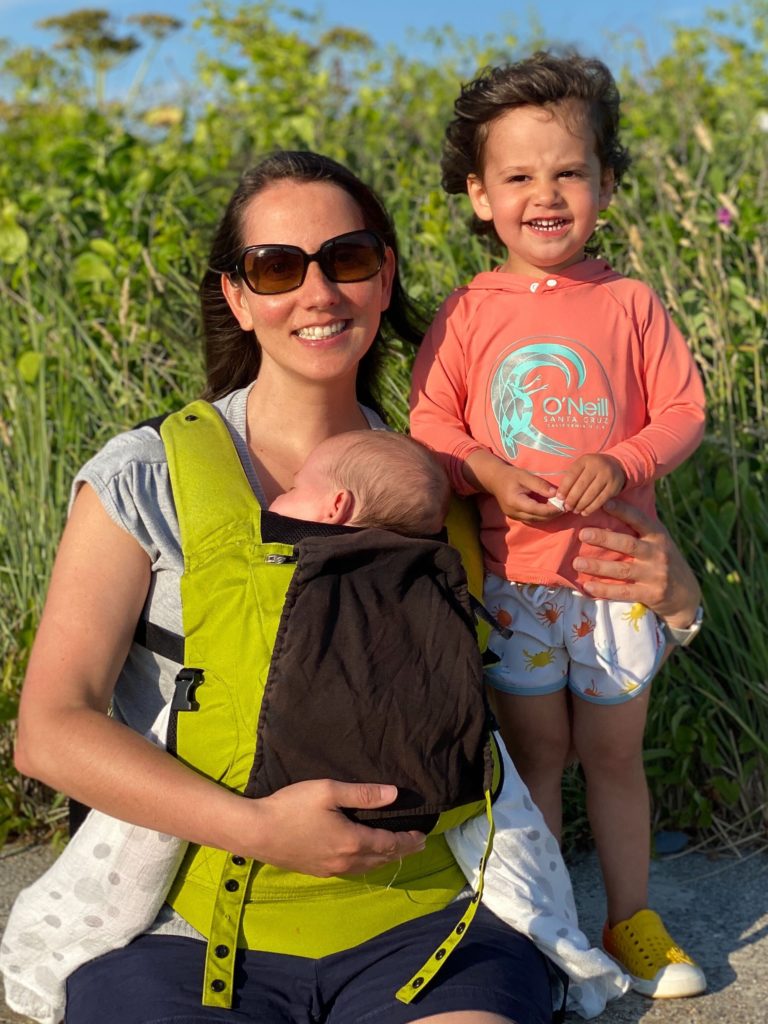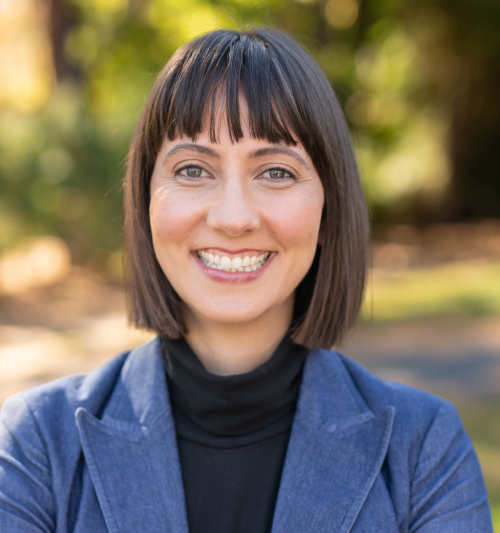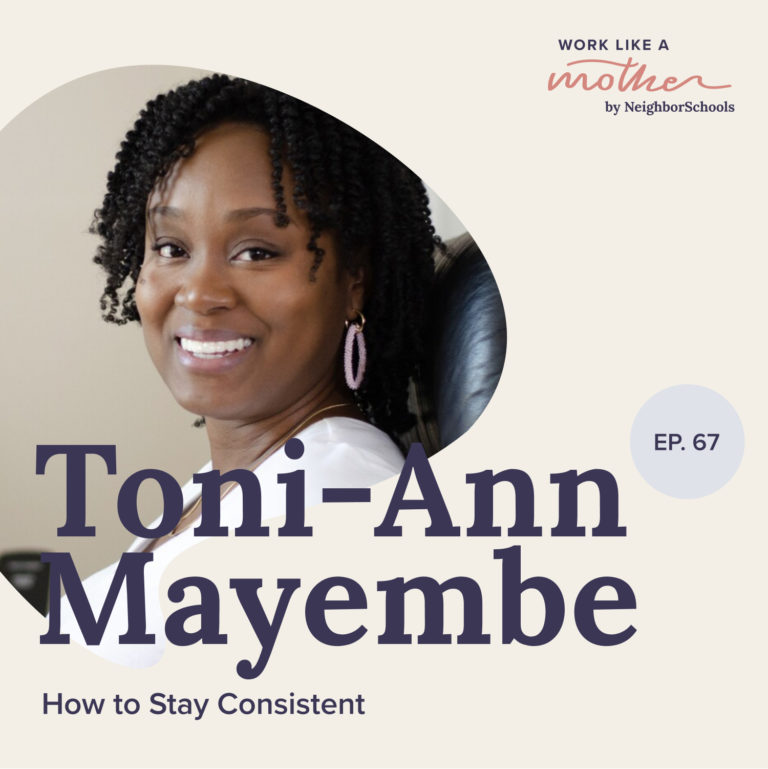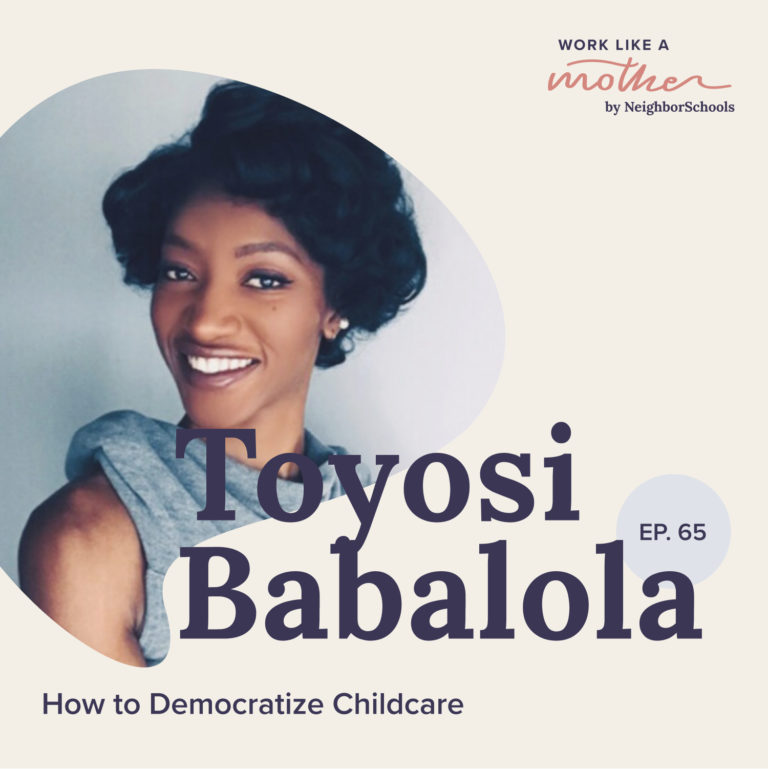When my fertility doctor suggested I see a Pelvic Floor Physical Therapist, I didn’t even know what pelvic floor muscles were or why they mattered so much. But once I got pregnant, I became intimately aware of my pelvic floor and the stress our bodies go through during pregnancy, labor, the first poop after giving birth and those first weeks with a tiny newborn. So I was shocked when my 6 week check-in with my OB lasted all of 15 minutes, and I was told I could return to all “normal” activity. I didn’t quite understand what that meant or how that was possible. I was still bleeding, my hemorrhoids made it painful to poop, I struggled to lift Hudson in his carseat because my core was weak from diastisis and my scar tissue from tearing during delivery made sex the farthest thing from my mind. But I didn’t know any different so I left thinking this must be how it is. Fortunately, my pelvic floor PT was there to not only help my body recover but she also treated me with the kindness and care and genuine interest in my well being that I needed. With her help, I had the strength to better adjust to my new role as a mom. So, it’s with a profound appreciation and respect for everything that they do that I’m so glad to bring you this conversation with Sara Reardon today.
Watch + Listen to the whole conversation:
As soon as she started her physical therapy program, Sara knew that she wanted to focus on the pelvic floor. At first she was mostly curious to learn more about her own body, but curiosity turned into passion as soon as she became a mom. Like so many of us, Sara was surprised and disappointed to learn how moms are treated by the healthcare system during postpartum care. Today she’s a leading voice on pelvic floor issues, and runs her own PT center in New Orleans dedicated to helping women through pregnancy and postpartum. Sara started @the.vagina.whisperer, an online community, to normalize pelvic floor issues that often make women feel isolated, uncomfortable and alone. It’s all part of her personal mission to reimagine postpartum care, one mom at a time.
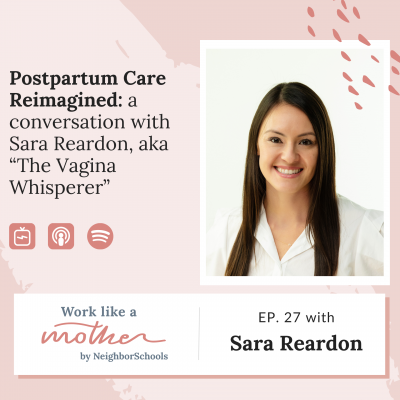
What inspired you to start @the.vagina.whisperer?
I really started being more active on social media because I saw how alone people felt with pelvic floor issues. I see individuals of all genders, but moms specifically, who were coming in saying- I have this problem with pain with sex or I’m leaking when I exercise or my scar from my c-section hurts- and they felt like they were so alone. But then the next patient would come in and say the same thing and feel the same way. And so I thought so many people are experiencing this and they just don’t know that other people are too. I think it’s really amazing to feel seen and to know that you’re not alone, but then also to know whether you just have to deal with something or when you should go seek help. And regarding pelvic floor issues, there’s actually so much that can be done about pain or discomfort you’re experiencing.
What is something you wish pregnant women knew?
I can even say this for myself having gone through it twice is that I am a big fan of being proactive in preparing for birth. One of the reasons for that is if we don’t even know that we have muscles down there, we don’t even realize that they play a role in vaginal birth and cesarean birth, then how do we know how to manage it? How do we know what to do when it’s game time if no one’s ever taught you? How are we expected to run a marathon if nobody ever taught us to walk?
We see a lot of women in our clinic here in New Orleans and we work with them some online as well if they’re not local. We teach things like how you breathe when you give birth and what it feels like to push. We teach different options for pushing, different things you can do during labor to keep a pelvis loose, and how a baby comes down the birth canal. I mean, these are muscles and bones like any other part of your body. And so I think if we can help women feel empowered and informed going into that process, then everything can potentially go much more smoothly.
What advice do you have for women who are postpartum?
And then with regards to postpartum, everybody is different and I hate to give this blanket advice of ‘take it slow’ because that was one of the hardest things for me. I wanted to get back to seeing my friends. I wanted to start exercising again. I just felt like I was grasping for these pieces of what felt like my old life, but I wasn’t ready right after giving birth. I tried to run too fast and do everything, but I was just completely worn out physically and emotionally. I do encourage people to take it slow and to check in with pelvic floor therapists. We usually see people around four to six weeks postpartum.
You should also know that if something is bothering you, then it’s a problem. Maybe you’re experiencing a little bit of leaking when you cough, or sex isn’t totally painful but it’s just a little bit in this position. If it bothers you then get help. When things start affecting your quality of life, then I think that they’re worth getting checked out.
I loved your Ted Talk around rethinking postpartum care specifically. Can you tell me a little bit about why you think our society needs to rethink postpartum care?
I think postpartum care needs to look different than it does now. So I mean the fact is that there is just such little support for all moms postpartum when it comes to health care. We have maybe one check in after giving birth. Research shows that 40% of moms don’t even attend. The lack of universal maternity leave also forces some moms to go back to work within weeks of giving birth when they are still healing. A lot of moms, including myself, drop out of the workforce within the first two years after giving birth, or significantly cut back their hours.
Honestly, I think paid maternity leave is really necessary. New moms need and deserve the financial support to help us stay home and heal physically and emotionally. People have knee surgery and they get more time off of work than we do after giving birth. It just blows my mind. I think that one of the reasons I focus a lot on pregnancy and postpartum is because it’s just such a huge physical transformation that we go through.
After giving birth, such wonderful care is given to the baby but the mother is largely ignored. I remember going to all of these pediatric appointments for my child while I was struggling with breastfeeding. I was crying in a closet and calling friends desperately. I felt like there was nobody there for me. I didn’t even know who to call if there was a problem and I’m in the medical field. Why is this so difficult for new moms to get the support we need?
Bridget Garsh
Co-founder & COO
Bridget is mom to two little boys, Hudson and Brooks, and a champion of working moms everywhere. NeighborSchools itself was borne out of Bridget’s challenge to find high-quality yet affordable child care, and the realization that so many parents struggle with these same issues every day.
Read more from Bridget, follow her on IG, and check out her new series, Work Like a Mother.
